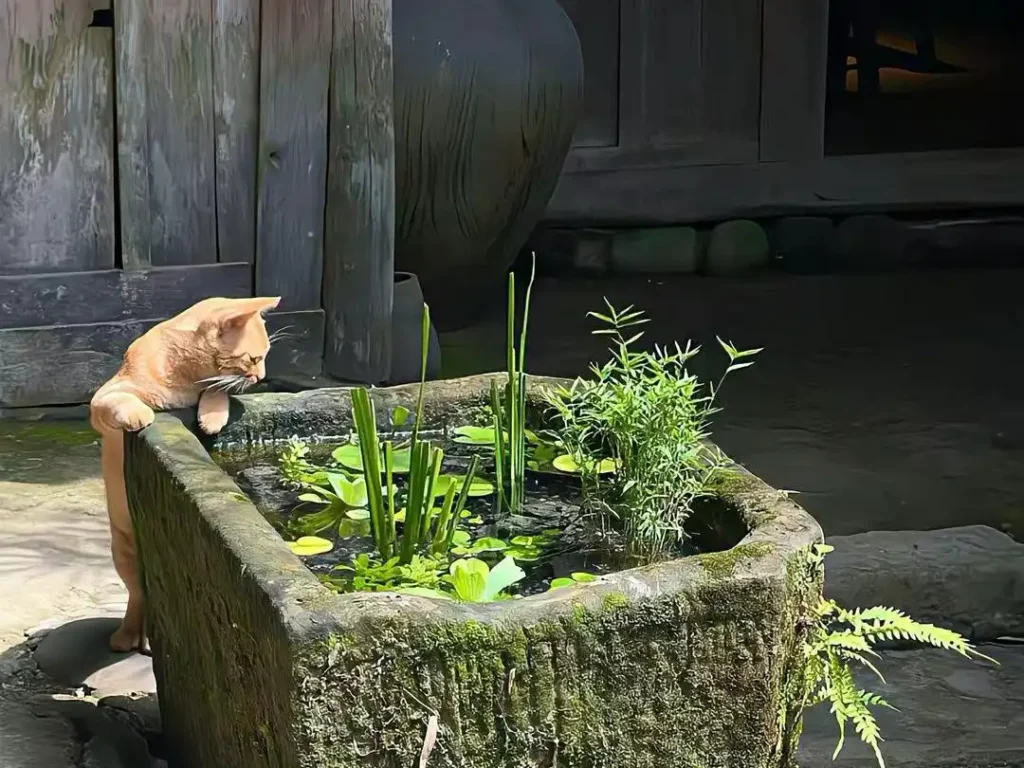🎧 Listen to text audio:
羊驼 很 可爱,大人 和 小朋友 都 喜欢。
Pinyin
Yángtuó hěn kě’ài, dàren hé xiǎopéngyǒu dōu xǐhuan.
English
Alpacas are very cute. Adults and children both like them.
它们 有 大 眼睛、长 脖子,和 软 软 的 毛,像 一 个 大 玩具。
Pinyin
Tāmen yǒu dà yǎnjing, cháng bózi, hé ruǎnruǎn de máo, xiàng yí gè dà wánjù.
English
They have big eyes, long necks, and soft fur. They look like a big toy.
羊驼 的 性格 温和,不 咬 人,也 不 乱跑。
Pinyin
Yángtuó de xìnggé wēnhé, bù yǎo rén, yě bù luànpǎo.
English
Alpacas have a gentle personality. They don’t bite, and they don’t run around.

主人 叫 它们,它们 会 走 过来。
Pinyin
Zhǔrén jiào tāmen, tāmen huì zǒu guòlai.
English
When their owner calls them, they will walk over.
出门 散步 时,它们 会 一直 跟着 主人,不会 走丢。
Pinyin
Chūmén sànbù shí, tāmen huì yìzhí gēnzhe zhǔrén, bú huì zǒudiū.
English
When going for a walk, they will always follow their owner and won’t get lost.
如果 羊驼 生气 了,它们 会 吐 口水!
Pinyin
Rúguǒ yángtuó shēngqì le, tāmen huì tǔ kǒushuǐ!
English
If an alpaca gets angry, it will spit!
它们 有时 会 发出 有趣 的 声音。
Pinyin
Tāmen yǒushí huì fāchū yǒuqù de shēngyīn.
English
Sometimes, they make funny sounds.

羊驼 喜欢 吃 草,也 爱 吃 胡萝卜 和 水果。它们 的 食物 简单,养 起来 不 难。
Pinyin
Yángtuó xǐhuan chī cǎo, yě ài chī húluóbo hé shuǐguǒ. Tāmen de shíwù jiǎndān, yǎng qǐlai bù nán.
English
Alpacas like to eat grass. They also love eating carrots and fruit. Their food is simple, so raising them is not hard.
主人 不 在 家 时,朋友 也 可以 帮忙 喂 它们。
Pinyin
Zhǔrén bú zài jiā shí, péngyǒu yě kěyǐ bāngmáng wèi tāmen.
English
When the owner is not home, friends can also help feed them.
你 想 养 一 只 羊驼 做 宠物 吗?
Pinyin
Nǐ xiǎng yǎng yì zhī yángtuó zuò chǒngwù ma?
English
Do you want to have an alpaca as a pet?
语法点 (Grammar Points)
1. 不 + Verb – Not (doing something)
This structure is used to indicate negation, meaning “not doing” something.
文中 (In text):
– 羊驼的性格温和,不咬人,也不乱跑。- Alpacas have a gentle personality. They don’t bite, and they don’t run around.
例 (Example):
– 我 不 喝 咖啡。 – I don’t drink coffee.
2. 会 + Verb – Will / Can (do something)
This structure is used to express an ability or a future action, similar to “will” or “can” in English.
文中 (In text):
– 主人叫它们,它们会走过来。- When their owner calls them, they will walk over.
例 (Example):
– 明天 我 会 去 学校。 – I will go to school tomorrow.
3. 如果 – If
如果 is used to express a condition.
文中 (In text):
– 如果羊驼生气了,它们会吐口水!- If an alpaca gets angry, it will spit!
例 (Example):
– 如果 明天 下雨,我 就 不 去 公园。 – If it rains tomorrow, I won’t go to the park.
4. 也 + Verb – Also (doing something)
This structure is used to show that someone or something does the same action as another.
文中 (In text):
– 羊驼喜欢吃草,也爱吃胡萝卜和水果。- Alpacas like to eat grass. They also love eating carrots and fruit.
例 (Example):
– 我 喜欢 喝 茶,我 妈妈 也 喜欢 喝 茶。 – I like drinking tea. My mom also likes drinking tea.
Download the PDF Version
Want to read this story offline? Get the PDF version sent directly to your email.
Simply enter your email below, and we’ll send you the downloadable PDF for this lesson.


